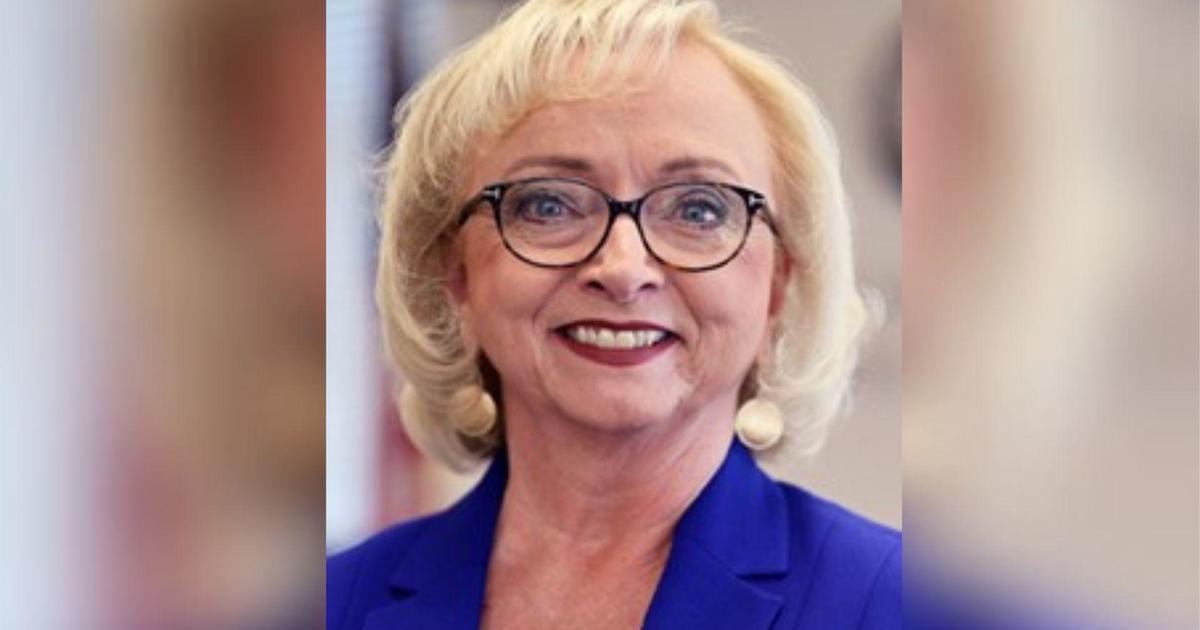State National Guard Unit Pursues Humanitarian Mission
BALTIMORE (AP) — When Maryland National Guard Chief Warrant Officer Kaylan Harrington lived among the civilians in an Afghan village, her assignment was to build relationships, get a sense of the locals' concerns and try to persuade them it was in their best interests to resist the Taliban.
During that year-long stay in the central Afghanistan district of Mohammad Agha, the intelligence specialist watched as Afghan girls walked for miles to get to their schools — even though conditions in those schools were deplorable.
"Even now, years after the Taliban's rule, there are very few resources for girls' schools, and in most places girls don't go to school at all," she says from Camp Morehead, a training compound six miles south of Kabul. "But these children are resilient. You wouldn't believe how hard they try."
The Towson-based Special Operations Detachment of the Maryland National Guard, like most of the 15,000 U.S. troops now in Afghanistan, has the primary mission of training, advising and assisting the Afghan National Security Forces. SOD-O, as the Maryland unit is known, focuses on training the Afghan Army's special forces commandos.
But for the past year, Harrington and 39 other members have used their limited spare time to lead a campaign of humanitarian work that has helped thousands of girls get educated, delivered food and supplies to abused women and orphans, provided safe play areas for children and improved conditions for young mothers.
Harrington, 34, and five fellow soldiers have spearheaded the construction of a building,10 bathrooms and a water storage tower at Rhish Kvor Girls' School, a school near Kabul attended by 2,700 girls aged 6 to 16. They've beefed up security measures around the school and raised enough money from outside the military to provide about 500 desks and chairs, thousands of books, and more than a ton of school supplies, including notebooks, crayons and backpacks.
The Marylanders have also provided three tons of supplies for a battered women's shelter and orphanage, rebuilt a community dental clinic, built a playground and delivered more than five tons of supplies to the largest maternity hospital in Afghanistan.
It's the kind of work that's ordinarily performed by the military's civil affairs units, civilian agencies and non-governmental organizations. But most such groups have left Afghanistan since President Barack Obama drew most U.S. combat troops out in 2014.
Officially and unofficially, special operations forces have been stepping in to fill the gap.
Austin Long is a former adviser to the U.S. military in Afghanistan.
While special forces soldiers have always had a role beyond combat, he says, what the Maryland unit has achieved is unusual, in part because "training commandos in itself is certainly a full-time job."
"There are just too few U.S. troops to make up for the shortfall in NGO presence, so everything helps," Long says. "That means each effort, such as the Maryland SOD's work with the girls' school, is really important."
The Maryland Guard estimates the value of the projects at nearly $500,000.
More than half that amount came from the Commander's Emergency Response Program, or CERP, an emergency assistance fund offered by the military. The soldiers say they raised the rest on their own time by using personal connections — and social media — to reach out to fellow soldiers and their families, and friends and aid agencies back home.
Maryland Guard officials say the work has helped advance the central mission of NATO's Operation Resolute Support: To stabilize conditions in Afghanistan in a way that can endure long after American troops are gone.
"To borrow a cliche, it's about winning hearts and minds, not just winning on the battlefield," says Col. Charles Kohler, a guard spokesman. "These projects have vastly improved our relationship and trust with our partnered Afghans and surrounding populace.
SOD-O — the abbreviation is short for Special Operations Detachment OTAN, the acronym the French and Spanish use for NATO — returns home in March after a year's work.
Maj. Benjamin Posil, a SOD-O leader, says the motivation has been simple.
"Starting with the Soviet invasion in 1979, and right on through the Taliban and the U.S. invasion (in 2001), most of the population here has been alive through nothing but conflict," he says from Afghanistan. "Whether it's in terms of food supplies, basic security or cultural and family conditions, their lives have been defined by instability.
"The resources are available. It's a matter of taking the time and effort to leverage them. It takes very little for us to make a positive difference."
Special operations units typically consist of a small number of highly trained personnel who are adaptable, independent and capable of operating in a wide range of environments, often in secret. They have long trained military forces of developing allies.
In many ways, the Maryland SOD-O is atypical for a special operations outfit.
It's one of just nine such units within a state National Guard, as opposed to a federal military branch and only about a third of its soldiers are special forces-trained.
As National Guardsmen, they bring a broad range of skills from their civilian professions. Members are chosen for their resourcefulness and records of military excellence.
The team of 40 includes employees of the National Security Agency and the CIA, former humanitarian aid officials with experience in combat zones and the owner of a construction company.
All either live in Maryland or commute for monthly training.
Posil, a 41-year-old Baltimore native, lives with his wife and two children in Washington. He works in the sale and transfer of military equipment at the Washington Navy Yard.
He says the experience and range of skills in SOD-O makes it an ideal "plug-and-play headquarters element."
"We can be placed in a situation like this and be up and be taking care of ourselves and supporting other units in a very short period of time," he says.
Harrington is an exemplar of a relatively new breed — female soldiers embedded with special operations units in order to facilitate communication with female civilians in socially conservative societies.
In 2013, when she was attached to a task force in Logar Province, she took special note of living conditions for women and girls.
It's still taboo in Afghanistan for females to talk with men who are not their fathers or husbands, and Harrington knew that even though life is better for girls now than they were under the Taliban, more than 80 percent of the 3.5 million children who don't go to school are girls.
Seventy percent of adolescent girls are illiterate. That's about twice the boys' rate.
She saw the problems at Rhish Kvor Girls' School near Camp Morehead.
The decrepit stucco building held only 100 girls. The great majority of girls — more than 2,600 — studied out of doors, changing their positions regularly to stay in the shade.
The school had no desks, no electricity, no bathrooms, no running water.
Proximity to the base has kept the girls relatively safe from attack, Harrington says. Under the Taliban, educators who tried to teach girls were routinely killed.
Taliban fighters now control more than 40 of the country's 398 districts, and are vying for control of nearly 120 more.
And in the wake of terror attacks in recent weeks that have left more than 130 people dead, tensions are at least somewhat heightened, the soldiers say.
Working off-base in Afghanistan requires extensive planning and many signatures. Each time the volunteers wanted to visit the school, they had to submit plans to security and logistics officials two weeks in advance.
The team planned around one constant headache: The population is so poor that funds and supplies often disappear. Harrington, Posil and their comrades sought projects that involved materials that could be used for only one purpose and whose benefits were likeliest to last.
The volunteers hired Afghan contractors to construct a new school building that includes five classrooms, built a septic tank system that the national education ministry has agreed to maintain, added more than a foot to the wall that surrounds the campus and topped it with barbed wire.
The group drew on military funds for most of those improvements. Because CERP funds can be used only for "emergency" situations, they had to find alternate sources to provide supplies.
Reaching out via Facebook, Twitter and GoFundMe pages, the group scored help from the Baltimore Book Bank, which sent 500 books on Christmas; Soldiers' Angels, which donated several tons of school supplies, and a California nonprofit called Hoopoe Books, which donated more than 15,000 children's books in Dari, the second most widely spoken language in Afghanistan.
"The outpouring of support from Americans in general has been unreal," Harrington says.
A functioning school for girls can do wonders for a community, Posil says, and the "pile of dirt" they turned into a sturdy playground can have disproportionate positive effects, from keeping children out of harm's way to offering families a place to gather for fun.
Once word got out about the girls' school, he says, requests for more projects poured in. The volunteers kept working, sharpening their methods as they went.
The American Legion post in Harrington's hometown, Centreville, paid for 125 pounds of Halloween candy, which the group delivered — along with jackets and three tons of food — to the Afghan Women's Education Center, a facility in Kabul that works with abused women and serves as home to nearly 250 kids, some of them orphans and some the women's sons and daughters.
Harrington said hundreds of kids crowded around to grab the treats.
"I think they were a little overwhelmed," she says. "I know they were plenty sugared-up for a while."
Each of the 50-pound bags of rice they delivered that day was enough to feed several otherwise hungry families for weeks.
"That's not a long-term solution, but in communities where survival is the immediate goal, it definitely has a very real impact," Posil says.
Harrington says she continues to be "amazed at the compassion and kindness Afghans show, even after all they've been through" — one reason she has "bittersweet" feelings about returning home next month.
Yes, she adds, it would be folly to believe the team's work will end centuries of gender inequality or resolve Afghanistan's other complicated problems. But as a special operations team member, she knows a small but well-placed effort can lead to larger-than-expected results.
"All you have to do is touch one or two people, and that one or two people can start a ripple effect," Harrington says. "We'll never know how many people we've touched or how many lives we've saved.
Follow @CBSBaltimore on Twitter and like WJZ-TV | CBS Baltimore on Facebook
(© Copyright 2018 The Associated Press. All Rights Reserved. This material may not be published, broadcast, rewritten or redistributed.)



